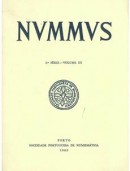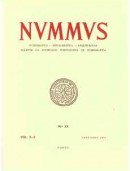[First posted in AWOL 15 March 2010. Updated 28 July 2014]
Analecta Romana Instituti Danici
P-ISSN: 0066-1392
E-ISSN: 2035-2506
Analecta Romana Instituti Danici
P-ISSN: 0066-1392
E-ISSN: 2035-2506
Analecta Romana Instituti Danici (ARID) publicerer studier indenfor Instituttets hovedforskningsområder: humanistiske studier (f. eks. antikhistorie, arkæologi kunsthistorie, historie, litteratur, filologi), billedkunst og arkitektur. Siden 2008 udkommer tidskriftet både i en papir- og en digital udgave.Analecta Romana Instituti Danici (ARID) publishes studies within the main range of the Academy's research activities: the humanities (e.g. ancient history, archaeology, art history, history, literature, philology), the fine arts and architecture. Since 2008 the journal is published both on paper and on-line.La rivista Analecta Romana Instituti Danici (ARID) pubblica studi nell'ambito dei settori principali di indagine dell'Accademia di Danimarca: la ricerca umanistica (storia antica, archeologia, storia dell'arte, storia, letteratura, filologia), le arti figurative e l'architettura. A cominciare da 2008 ANALECTA è pubblicata anche online.
See the full List of Open Access Journals in Ancient Studies














 7/31/2014
7/31/2014  Kristina Killgrove
Kristina Killgrove 










